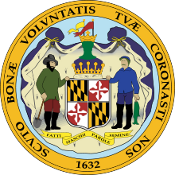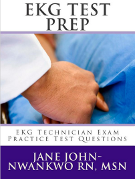The state law does not address EKG technician training and certification requirements in the state of Maryland. Governing bodies tend to categorize technicians as unlicensed assistants and requires them to comply with guidelines for task delegation. Those who are looking into the potential for a career as a technician in the cardiac care division are advised to become familiar with the delegation regulations and to learn more about entry-level options that may offer opportunities to gain valuable experience with direct patient care.
Delegation Regulations
According to Maryland rules and regulations, the term ‘delegation’ means the act of authorizing an unlicensed individual, certified nursing assistant, or a medication technician to perform acts of registered nursing or licensed practical nursing. A nurse who decides to delegate tasks to an unlicensed individual is responsible for the care that is rendered and the health outcomes that the patient experiences. Tasks that are delegated must be…
- within the area of responsibility of the nurse
- properly and safely performed by the unlicensed individual
- within the scope of sound nursing judgment
Furthermore, the task that is being delegated may not require the unlicensed individual to exercise nursing judgment or intervention except in an emergency situation. Prior to the delegation of a task, the nurse must assess the patient’s nursing care needs, instruct the individual in the delegated task or verify the unlicensed individual’s competency to perform the nursing task, supervise the performance of the delegated nursing task, be accountable and responsible for the delegated task, evaluate the performance of the delegated nursing task, and be responsible for assuring accurate documentation of outcomes on the nursing record.
Education and Training Requirements
Unlicensed areas of allied health often require only a high school diploma or GED, in-house training, and successful completion of a certification examination. Since EKG technicians work in a specialized area of care, some employers may prefer to hire individuals who have a minimum of a two-year allied health degree and prior experience in direct patient care. Those who are new to the healthcare sector often work in generalized areas of patient care before they apply for positions in specialized departments. This approach offers a few appealing benefits including the opportunity to master the basics of comprehensive care and gain exposure to a wide variety of medical departments that may be of interest when attempting to advance one’s career.
Popular allied health positions include that of nursing aide, medical assistant, the pharmacy technician, dialysis technician, dental assistant, radiographer, a nuclear medicine technologist, and the radiation therapist. In Maryland, a nursing assistant is required to be certified by the Board of Nursing. To become certified, an assistant is required to successfully complete an approved training program. Those who intend to work in the radiation department are subject to more stringent education, training, and licensing requirements.
State Contact Information
Phone: (410) 767-6500
Toll-Free: (877) 463-3464
 201 W. Preston St. Baltimore, MD 21201
201 W. Preston St. Baltimore, MD 21201
Phone: (410) 585-1990
Fax: (410) 764-8042
Email: kirby.graham@maryland.gov
4140 Patterson Ave. Baltimore, MD 21215






Hello, I am interested in the EKG training. Thank you